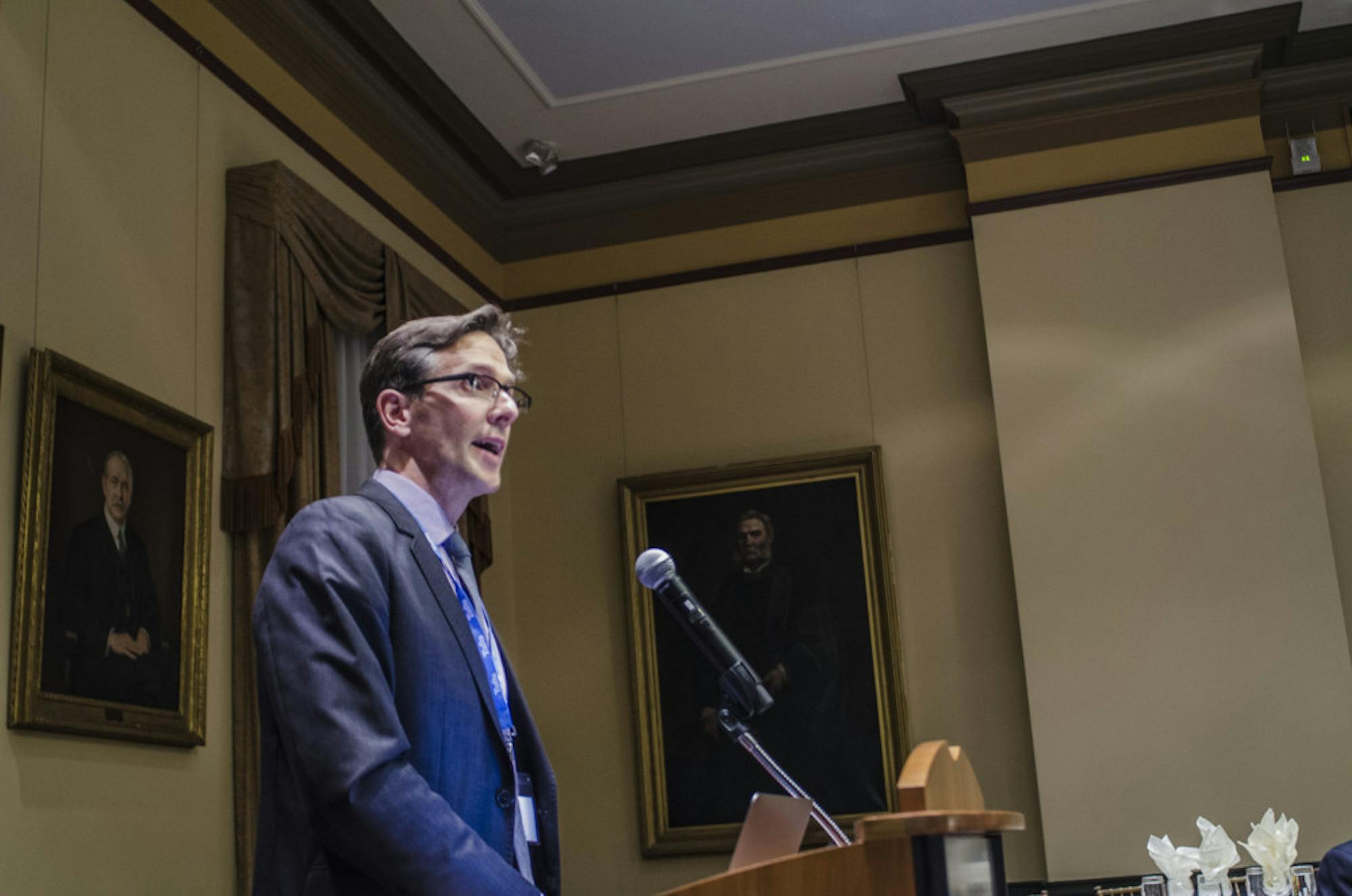The Association for College and University Religious Affairs (ACURA), a national collegium made up of chaplains, deans and directors of religious and spiritual life in higher education, held its annual conference at Tufts last week from Sunday, Oct. 26 to Tuesday, Oct. 28.
ACURA is an interfaith association that includes representatives from many institutions, including major research universities as well as prominent small liberal arts colleges, according to Tufts University Chaplain Reverend Greg McGonigle.
McGonigle explained that the purpose of the annual meeting is to build professional connections and share resources, recommended practices and ideas. Attendees worked together to think about the role of spiritual and ethical life in higher education and to explore some of the most pressing issues facing higher education today from the perspective of spiritual life.
This year's ACURA conference was one of the best attended in the organization’s history, with over 80 leaders of spiritual life from campuses across the country in attendance, according to Director of Religious and Spiritual Life at Vassar College and ACURA President Reverend Samuel Speers.
Leading up to the conference, Speers said he was looking forward to seeing how Tufts’ hosting of the conference would impact the discussions and topics.
“We really enjoy having the host campus shape the direction of that particular year’s gathering," Speers said. "We get to learn about the remarkable work that happens on a wide array of campuses, and it’s different on each campus, and this year we get to see how the chaplaincy at Tufts is working to engage with the wider university community.”
Conference attendees took part in panels and discussions on topics such as “Active Citizenship, Global Learning and Spirituality,” “Reflections on Intersections in Practice,” “Theological Education for Changing Chaplaincies” and “The Intersectionality of Politics and Spirituality.” Those attending the conference also had the chance to see several performances at Tufts and view the sacred spaces that have been established on campus. According to McGonigle, the conference was a partnership between Tufts and Harvard University, so attendees visited the Harvard Divinity School as well.
Speers explained that Tufts was selected to host the conference for a number of reasons, including the strength of ACURA membership in the Northeast.
“Each year, as a board, we consider options of where the conference might be, and we decided that Tufts would be an especially good fit this year," he said. "Our membership is across the country [so] we try to mix up location ... We liked the idea of being in the Boston area -- knowing that partnerships would be possible -- and we’re very happy about how the partnership worked out between Tufts and Harvard.”
Two of the speakers at this year’s ACURA conference were Brown University Chaplain Reverend Janet Cooper Nelson (G ’72) and University of Southern California Chaplain Varun Soni (LA ’96).
According to Cooper Nelson, this year’s conference was centered around the question of borders and intersections of religious and spiritual life on college campuses.
“As people develop identity -- undergraduates in particular -- they develop it in a variety of ways and with different foci,” Nelson said. “As that intersects, religious identity has frankly been one of the places where I would argue higher education has been less and less literate, and we tend to know a lot more about race or sexual orientation or gender and find that more comfortably addressed both in coursework and structural approaches on campus.”
Soni stressed the importance of gatherings like these for allowing religious leaders to connect with one another.
“What we want to be able to do is talk about some of the new initiatives we’ve developed over the course of the year and talk about and learn from other people how they might have addressed similar issues,” he said.
Cooper Nelson expressed a similar goal for the conference, adding that she was looking forward to hearing different stories, ideas and dilemmas from her colleagues.
“It’s interesting always to get a sense for the broader shape of this work -- I think that when you are in a university you can get pretty lost in the details of what’s going on where you are and not necessarily see the broader picture,” she said. “Part of what we’re looking to get out of it are ideas. We absolutely steal each other’s best ideas.”
Soni underscored the major shift in campus spiritual life today and the importance of discussing these changes with his peers.
“I feel like we’re in a very significant moment in American history, especially as it plays out in religious life and higher education," Soni said. "We’re in a period where almost 40 percent of university students are not formally affiliated with any religious tradition, and two-thirds of university students describe themselves as more spiritual than religious. So there is a generational shift in the way millennials view religious and spiritual life.”






